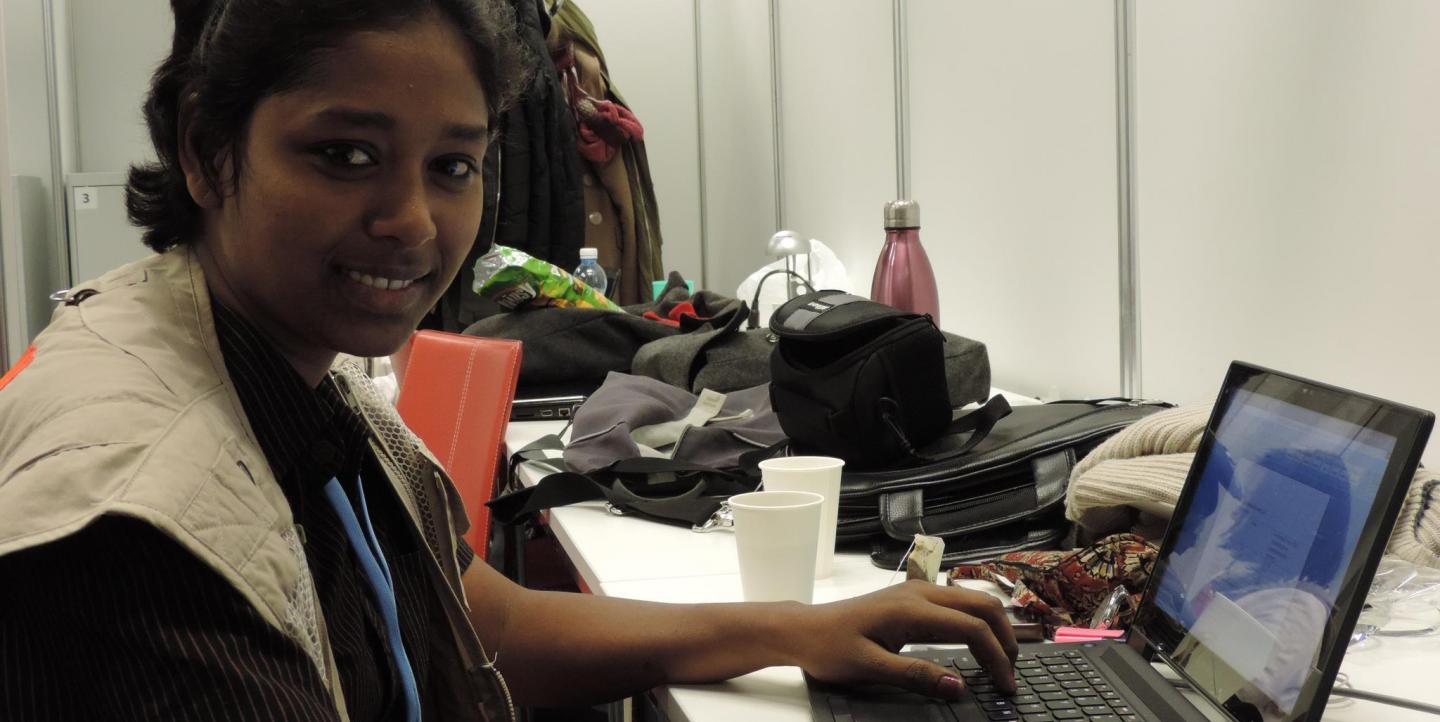Each month, IJNet features an international journalist who exemplifies the profession and has used the site to further his or her career. If you would like to be featured, email a short bio and a paragraph about how you have used IJNet here.
Updated Feb. 16, 2015 at 1:51 p.m. EST.
This month we feature Pramila Krishnan, 28, a special correspondent at News7Tamil, in India's Tamil Nadu state. Formerly, she worked at Deccan Chronicle, an English daily newspaper. She covers issues surrounding the environment, women and children, disability rights, education and empowerment of rural communities. In 2013, she took part in a DW Akademie workshop on environmental reporting in Chennai, that she learned about on IJNet. She was then chosen by DW to attend the 2013 UN climate conference in Warsaw.
IJNet: Tell us a little about your reporting and a favorite story you worked on.
Pramila Krishnan: I travel across my state in south India, Tamil Nadu, to write about social issues. This is my specialty because I believe media is a tool to bring change in society. I strongly believe that a reporter is a change-maker.
In 2010, I led an investigation of the practice of elders being killed by their own families in Virudhunagar district--a sort of mercy killing. This is an age-old tradition under which grown-up children conduct a ritual which involves giving sick elders an oil bath and feeding them tender coconut water to induce high fever and to kill them.
I learned about the killing of elders through volunteer organizations. I visited with villages and stayed there for some time to know about the issue in detail. I introduced myself as a researcher and interacted with several families to know the issues connected to the murders. You can see the print stories on my blog.
IJNet: Can you tell us more about the experience of "submerging" yourself into that story?
PK: In order to prove the traditional practice of murdering parents by children, I went around the villages and listened to elders in various households. I had the chance to interact with people who killed their parents. I went to the quacks [used in the sense of a medical imposter] in person and gathered all information under the guise of a granddaughter who wanted to kill her grandfather. Meetings with the quacks were risky. The biggest challenge was to record their statements on my camera and capture their identity.
I decided that I should not stop with the exposé but start a campaign. I wrote articles every now and then and with the help of volunteer organizations I was able to conduct meetings among the villagers and spread awareness. The government woke up to the issue and introduced a helpline for needy elders. Officials were instructed to check on the deaths of elders in villages and examine whether the death was due to natural cause or murder. As a result of continuous campaigns, elders' self-help groups were formed and elders came together to fight for their rights.
IJNet: How has IJNet helped you?
PK: IJNet is quite useful to know about international fellowships and important webinars. I have applied for World Press Institute fellowship and number of other fellowships with the help of IJNet alerts. Recently, I took an online community radio course through Future Learn, which helped me to know how community radio is perceived across different countries and how successful it will be in developing countries like India.
IJNet: What advice would you give aspiring journalists?
PK: Media will give you a platform to learn throughout your life. Work with passion and concern for people. Your readers/listeners are your boss.
Image courtesy of Pramila Krishnan.

